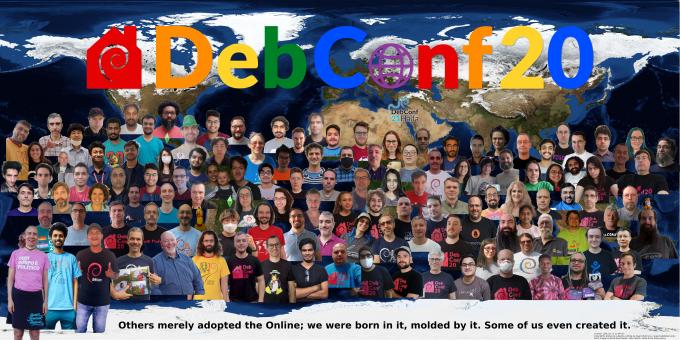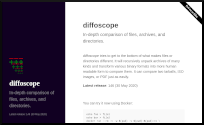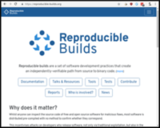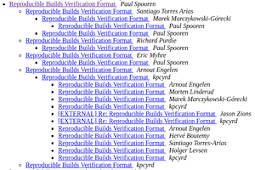

On Saturday 29 August 2020, the annual Debian Developers
and Contributors Conference came to a close.
DebConf20 has been held online for the first time, due to the coronavirus
(COVID-19) disease pandemic.
All of the sessions have been streamed, with a variety of ways of participating:
via IRC messaging, online collaborative text documents,
and video conferencing meeting rooms.
With more than 850 attendees from 80 different countries and a
total of over 100 event talks, discussion sessions,
Birds of a Feather (BoF) gatherings and other activities,
DebConf20 was a large success.
When it became clear that DebConf20 was going to be an online-only
event, the DebConf video team spent much time over the next months to
adapt, improve, and in some cases write from scratch, technology that
would be required to make an online DebConf possible. After lessons
learned from the MiniDebConfOnline in late May, some adjustments were
made, and then eventually we came up with a setup involving Jitsi, OBS,
Voctomix, SReview, nginx, Etherpad, and a newly written web-based
frontend for voctomix as the various elements of the stack.
All components of the video infrastructure are free software, and the
whole setup is configured through their public
ansible repository.
The DebConf20
schedule included
two tracks in other languages than English: the Spanish language MiniConf,
with eight talks in two days,
and the Malayalam language MiniConf, with nine talks in three days.
Ad-hoc activities, introduced by attendees over the course of the entire conference,
have been possible too, streamed and recorded. There have also been several
team gatherings to
sprint on certain Debian development areas.
Between talks, the video stream has been showing the usual sponsors on the loop, but also
some additional clips including photos from previous DebConfs, fun facts about Debian
and short shout-out videos sent by attendees to communicate with their Debian friends.
For those who were not able to participate, most of the talks and sessions are already
available through the
Debian meetings archive website,
and the remaining ones will appear in the following days.
The
DebConf20 website
will remain active for archival purposes and will continue to offer
links to the presentations and videos of talks and events.
Next year,
DebConf21 is planned to be held
in Haifa, Israel, in August or September.
DebConf is committed to a safe and welcome environment for all participants.
During the conference, several teams (Front Desk, Welcome team and Community team)
have been available to help so participants get their best experience
in the conference, and find solutions to any issue that may arise.
See the
web page about the Code of Conduct in DebConf20 website
for more details on this.
Debian thanks the commitment of numerous
sponsors
to support DebConf20, particularly our Platinum Sponsors:
Lenovo,
Infomaniak,
Google
and
Amazon Web Services (AWS).
About Debian
The Debian Project was founded in 1993 by Ian Murdock to be a truly
free community project. Since then the project has grown to be one of
the largest and most influential open source projects. Thousands of
volunteers from all over the world work together to create and
maintain Debian software. Available in 70 languages, and
supporting a huge range of computer types, Debian calls itself the
universal operating system.
About DebConf
DebConf is the Debian Project's developer conference. In addition to a
full schedule of technical, social and policy talks, DebConf provides an
opportunity for developers, contributors and other interested people to
meet in person and work together more closely. It has taken place
annually since 2000 in locations as varied as Scotland, Argentina, and
Bosnia and Herzegovina. More information about DebConf is available from
https://debconf.org/.
About Lenovo
As a global technology leader manufacturing a wide portfolio of connected products,
including smartphones, tablets, PCs and workstations as well as AR/VR devices,
smart home/office and data center solutions,
Lenovo
understands how critical open systems and platforms are to a connected world.
About Infomaniak
Infomaniak is Switzerland's largest web-hosting company,
also offering backup and storage services, solutions for event organizers,
live-streaming and video on demand services.
It wholly owns its datacenters and all elements critical
to the functioning of the services and products provided by the company
(both software and hardware).
About Google
Google is one of the largest technology companies in the
world, providing a wide range of Internet-related services and products such
as online advertising technologies, search, cloud computing, software, and hardware.
Google has been supporting Debian by sponsoring DebConf for more than
ten years, and is also a Debian partner sponsoring parts
of
Salsa's continuous integration infrastructure
within Google Cloud Platform.
About Amazon Web Services (AWS)
Amazon Web Services (AWS) is one of the world's
most comprehensive and broadly adopted cloud platforms,
offering over 175 fully featured services from data centers globally
(in 77 Availability Zones within 24 geographic regions).
AWS customers include the fastest-growing startups, largest enterprises
and leading government agencies.
Contact Information
For further information, please visit the DebConf20 web page at
https://debconf20.debconf.org/
or send mail to
press@debian.org.


 DebConf20 is taking place online, from 23 August to 29 August 2020.
It is the 21st Debian conference, and organizers and participants are working hard
together at creating interesting and fruitful events.
We would like to warmly welcome the 17 sponsors of DebConf20, and introduce them to you.
We have four Platinum sponsors.
Our first Platinum sponsor is
DebConf20 is taking place online, from 23 August to 29 August 2020.
It is the 21st Debian conference, and organizers and participants are working hard
together at creating interesting and fruitful events.
We would like to warmly welcome the 17 sponsors of DebConf20, and introduce them to you.
We have four Platinum sponsors.
Our first Platinum sponsor is 



 I don't generally write consumer reviews, here or elsewhere; but I have been so
impressed by this one I wanted to mention it.
For Holly's birthday this year, taking place under Lockdown, we decided to buy
a year's subscription to "Disney+". Our current TV receiver (A Humax Freesat
box) doesn't support it so I needed to find some other way to get it onto the
TV.
After a short bit of research, I bought the "Roku Express" streaming media
player. This is the most basic streamer that Roku make, bottom of their range.
For a little bit more money you can get a model which supports 4K (although my
TV obviously doesn't: it, and the basic Roku, top out at 1080p) and a bit more
gets you a "stick" form-factor and a Bluetooth remote (rather than line-of-sight IR).
I paid 20 for the most basic model and it Just Works. The receiver is very
small but sits comfortably next to my satellite receiver-box. I don't have any
issues with line-of-sight for the IR remote (and I rely on a regular IR remote
for the TV itself of course). It supports Disney+, but also all the other big
name services, some of which we already use (Netflix, YouTube BBC iPlayer)
and some of which we didn't, since it was too awkward to access them
(Google Play, Amazon Prime Video). It has now largely displaced the
FreeSat box for accessing streaming content because it works so well and
everything is in one place.
There's a phone App that remote-controls the box and works even better than the
physical remote: it can offer a full phone-keyboard at times when you need to
input text, and can mute the TV audio and put it out through headphones
attached to the phone if you want.
My aging Plasma TV suffers from burn-in from static pictures. If left paused
for a duration the Roku goes to a screensaver that keeps the whole frame
moving. The FreeSat doesn't do this. My Blu Ray player does, but (I think) it
retains some static elements.
I don't generally write consumer reviews, here or elsewhere; but I have been so
impressed by this one I wanted to mention it.
For Holly's birthday this year, taking place under Lockdown, we decided to buy
a year's subscription to "Disney+". Our current TV receiver (A Humax Freesat
box) doesn't support it so I needed to find some other way to get it onto the
TV.
After a short bit of research, I bought the "Roku Express" streaming media
player. This is the most basic streamer that Roku make, bottom of their range.
For a little bit more money you can get a model which supports 4K (although my
TV obviously doesn't: it, and the basic Roku, top out at 1080p) and a bit more
gets you a "stick" form-factor and a Bluetooth remote (rather than line-of-sight IR).
I paid 20 for the most basic model and it Just Works. The receiver is very
small but sits comfortably next to my satellite receiver-box. I don't have any
issues with line-of-sight for the IR remote (and I rely on a regular IR remote
for the TV itself of course). It supports Disney+, but also all the other big
name services, some of which we already use (Netflix, YouTube BBC iPlayer)
and some of which we didn't, since it was too awkward to access them
(Google Play, Amazon Prime Video). It has now largely displaced the
FreeSat box for accessing streaming content because it works so well and
everything is in one place.
There's a phone App that remote-controls the box and works even better than the
physical remote: it can offer a full phone-keyboard at times when you need to
input text, and can mute the TV audio and put it out through headphones
attached to the phone if you want.
My aging Plasma TV suffers from burn-in from static pictures. If left paused
for a duration the Roku goes to a screensaver that keeps the whole frame
moving. The FreeSat doesn't do this. My Blu Ray player does, but (I think) it
retains some static elements.








 I was gonna use this blog post to share about the migrant worker woes as there has been multiple stories doing the rounds. For e.g. a story which caught the idea of few people but most of us, i.e. middle-class people are so much into our own thing that we care a fig leaf about what happens to migrants. This should not be a story coming from a humane society but it seems India is no different than any other country of the world and in not a good way. Allow me to share
Or for those who don t like youtube, here s an alternative link
I was gonna use this blog post to share about the migrant worker woes as there has been multiple stories doing the rounds. For e.g. a story which caught the idea of few people but most of us, i.e. middle-class people are so much into our own thing that we care a fig leaf about what happens to migrants. This should not be a story coming from a humane society but it seems India is no different than any other country of the world and in not a good way. Allow me to share
Or for those who don t like youtube, here s an alternative link


 Dhauladhar range Northern Punjab Copyright CNN.Com
Dhauladhar range Northern Punjab Copyright CNN.Com